Canada-based Honeybee Centre is all about bees, and they are a busy company that is focused on educating people about honeybees through its Honeybee Centre Education, which offers numerous options for adults and children.
The education center has virtual field trips, and also has education kits on beekeeping and honey extraction, according to its Instagram account. It also hosts bus tours and private tours, virtual classes and adult group visits.
Honeybee Centre began as a grad school project, according to its website, and has developed into a commercial honey farm complete with a country store and an educational department. It's also a Canadian Food Inspection Agency-registered packing facility and attracts numerous visitors.
"This place (Honeybee Centre as you know it) was once just a dream—a spark—that transformed into an MBA project that just made sense. It became so much more than a school project; it had to be more. It was our little piece of how to save the world and we knew it could make a difference," the website states.
Honeybees are known as the most common pollinator and a vital part of 250,000 species of flowering plants whose existence depends on the transfer of pollen to reproduce, according to the U.S. Food and Drug Administration.
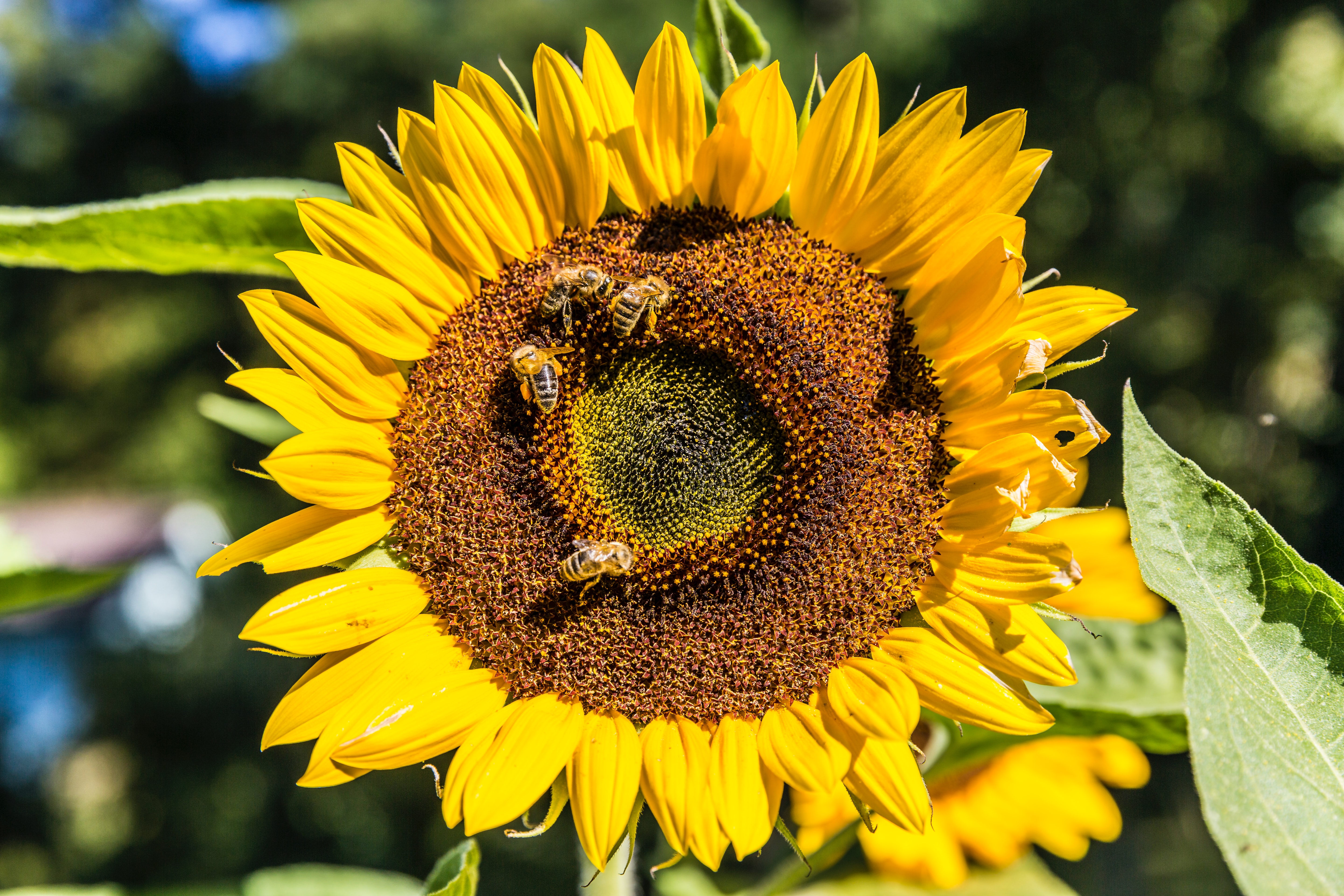
Flowering plants rely on honeybees to reproduce. Photo by Odin Aerni / Unsplash
"Our bees are buuuussssyy (and loving it)! Our beekeeping operations are centered around the pollination of multiple fruit crops so we can produce a variety of sweet, specialty honeys for you to enjoy. We also work with blueberries, raspberries, and cranberries for local growers, and have even become the largest pollinators of blueberries in Western Canada," Honeybee's website states.
Cassie Gibeau, one of the owners of Honeybee Centre and also the Education, Events & Outreach Coordinator, in an interview with Kinute explained about the organization, its education outreach, its growth and its future.
What is Honeybee Centre Education and how did it come to be?
Honeybee Centre Education is everything “education” at Honeybee Centre. We are a classroom, community programing, field trips, adult courses, kids activities, camps, resources, beekeeping experiences, social media platforms... Honeybee Centre Education is for everybody regardless of age, gender, social status, location. If you care about earth, you bee-long here. It is ways of delivering information and experiences to the community and beyond. It's an attempt to inspire curiosity and encourage participation in a better future for pollinators and our planet.
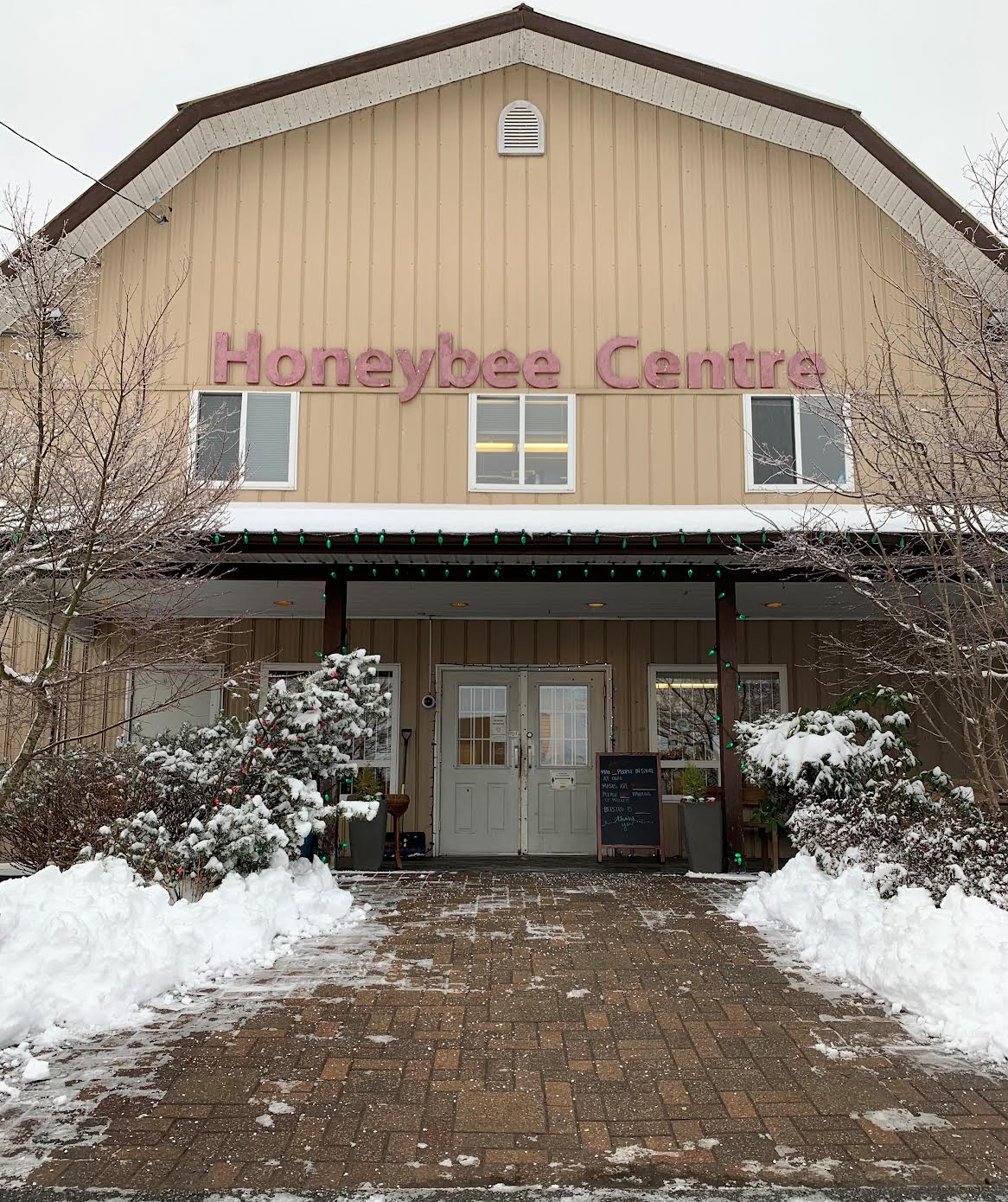
Honeybee Centre's family-run store is located in Surrey, British Columbia, Canada. Photo courtesy of Honeybee Centre
Honeybee Centre (HBC) was founded by my father-in-law 21 years ago as a commercial pollination business and education centre. I joined the family business full-time about seven years ago as the next generation of owners (with my husband and brother-in-law & sister-in-law). Today, Honeybee Centre is a commercial hone farm, country store, CFIA registered honey packing facility, visitor attraction and education centre located in Surrey, BC, Canada.
When the next generation joined the team, it gave us the ability to grow. Since 2015, I have built a honeybee classroom and education courtyard on site, set-up Bee Gardens in the Community, created new and engaging programming that encourages and inspires all people (even if they don’t love bees ... ), grew my education team by hiring a horticulturalist and bee educator to work with me, in 2018 started an Instagram Community @HoneybeeCentreKids to share everything we are learning and then went virtual in 2021 so not to lose momentum.
We encourage conversation and questions and are ALWAYS available @HoneybeeCentreKids to talk about bees and answer all your bee questions!
Before Honeybee Centre I worked for 19 years with the City of Burnaby as a recreation programmer with a focus on the preschool community and 55+ and low-income communities. I believe in early intervention and learning through experience. I’ve always loved bugs and realized that because I’m so full of curiosity, there is no room for fear!
What sparked your passion for honeybees?
I’ve always loved bugs… when I met my father-in-law, who was a beekeeper, I knew I had to do it too. Bees are fascinating and when you work with bees, you learn something new every moment.
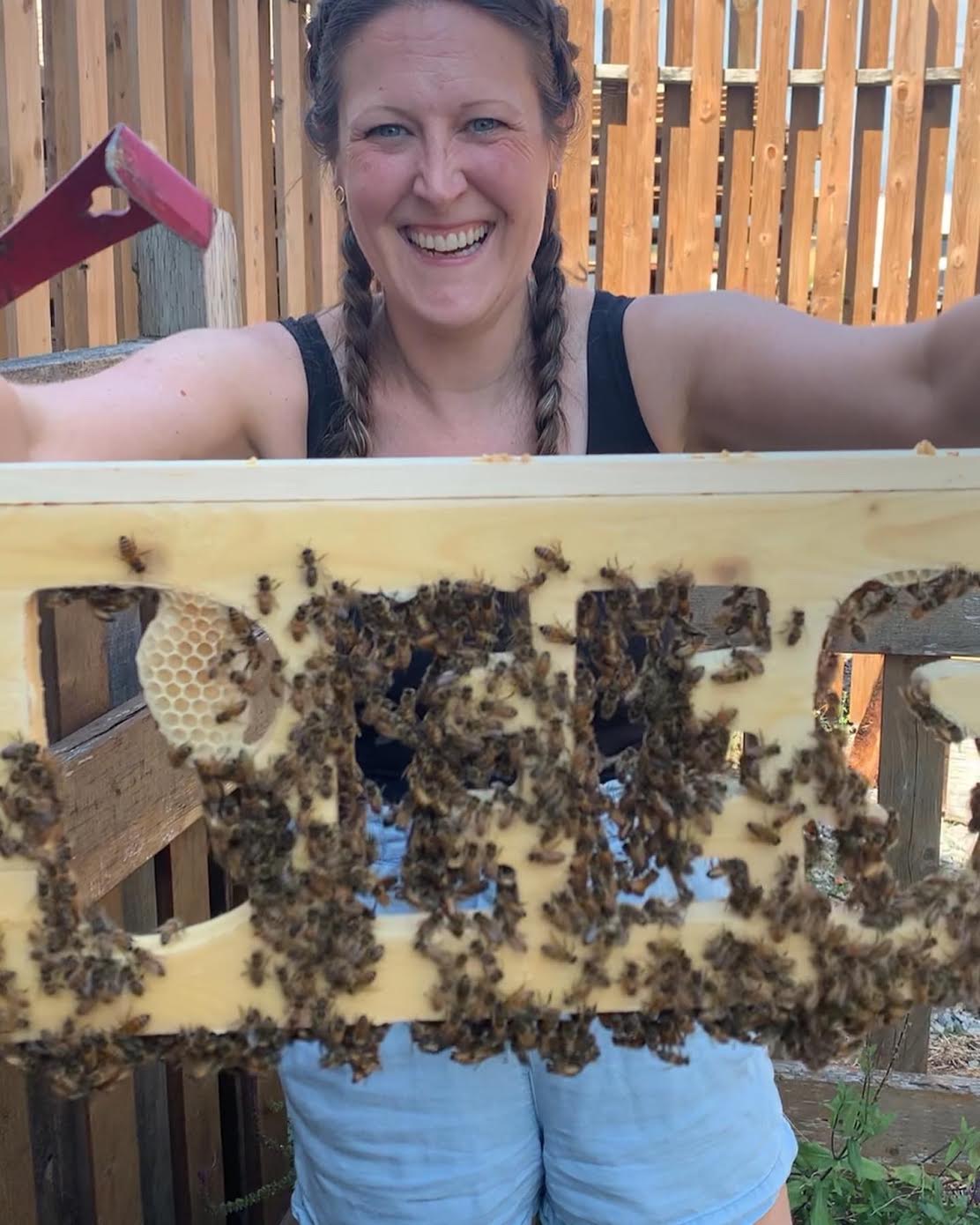
Honeybee Centre co-owner Cassie Gibeau holds up a bee frame. Photo courtesy of Honeybee Centre
How do honeybees help the environment?
As pollinators, bees play a part in every aspect of the ecosystem. They support the growth of trees, flowers, and other plants, which serve as food and shelter for many creatures. It’s important to note that honeybees are not native to North America. Unfortunately, bee populations here and around the world are in decline. Honeybees have been brought here to support pollination efforts. Unfortunately, due to larger crop sizes (native species often can't fly that far and therefore can’t survive once the crop is no longer blooming) and shrinking environment and forage for bees, humans have decreased our population of native species, which is something we need to work towards fixing… a temporary solution is employing honeybees. Honeybees can fly further and can be moved if the crop is no longer providing forage. I have also found that due to their popularity, honeybees are a conversation starter and a gateway for us to start thinking about and caring for other pollinators and our environment.
Can you explain the pollination process?
Pollination is when pollen from the male part of one flower (anther) are transferred to the female part (stigma) of another flower. Once pollination occurs, the fertilized flowers produce seeds and enable the associated plant to reproduce and form fruit/vegetables. As a general rule, bright-colored fruits and veg (blueberries, raspberries, tomatoes) are typically pollinated by insects whereas dull colors (corn, wheat, rice) are wind pollinated.
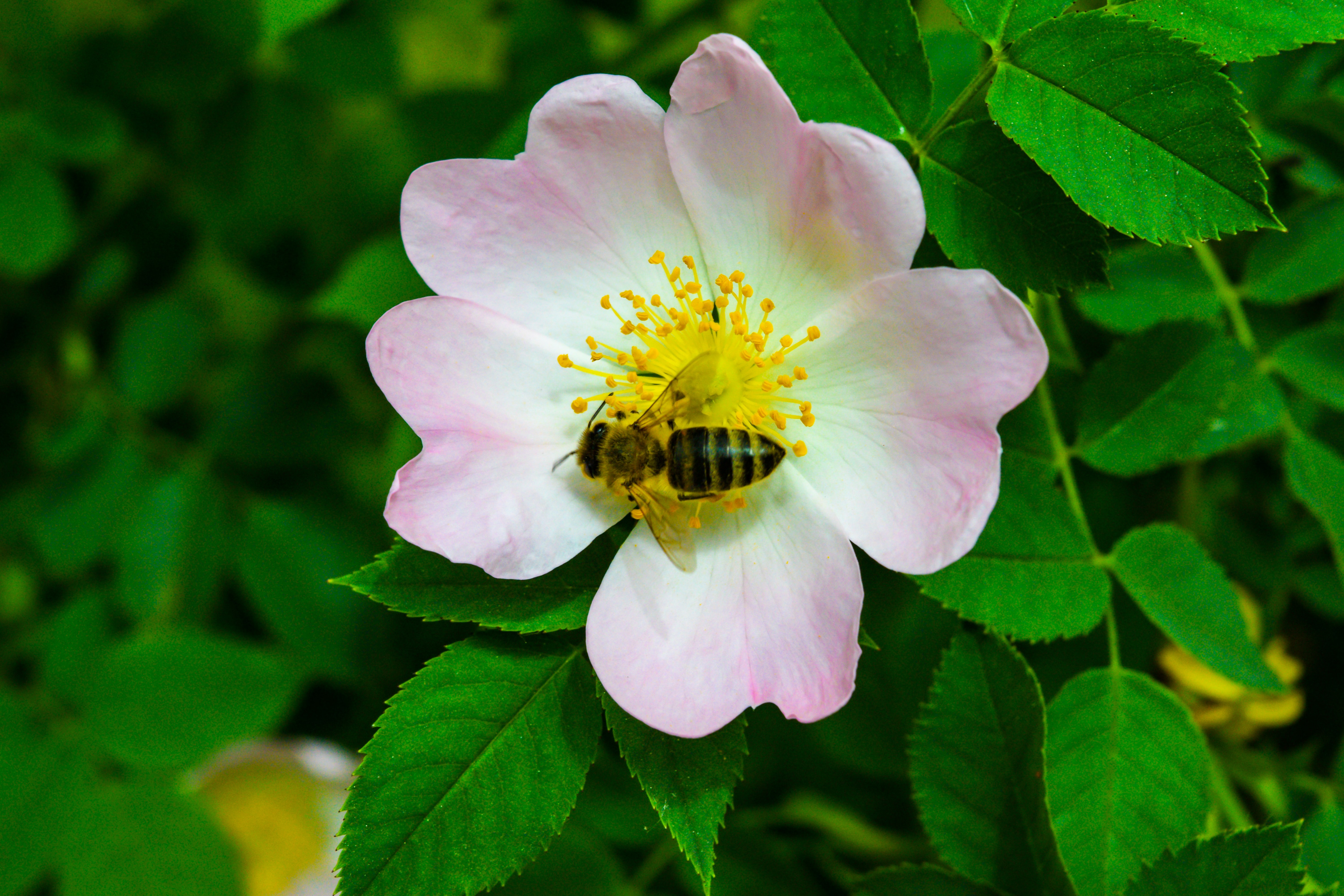
A bee pollinates a flower, supporting the reproduction of fruits and vegetables. Photo by Ivan Nedelchev / Unsplash
Have you ever seen a smaller, greenish, shriveled strawberry?? Or had a sour blueberry? That’s unpollinated!
What types of programming does Honeybee Centre offer?
At Honeybee Centre, we have lots of program & projects going on, something for every age and interest level. In everything we do, our goal is to educate about bees and the environment, spark curiosity and encourage people to get involved. Some of our favorite projects are:
Community Bee Garden – Installing bee habitat around the City of Surrey to educate about bees and the environment – currently we have 10 sites.
Hands-on Learning – depending on the time of year, we have beekeeping programs such as private hive tours (following a short lesson, guests suit up and go into a working hive with me to experience being up close with the bees); honey extraction workshops (following a short lesson, guests participate in extracting honey from freshly pulled frames. They scratch, spin and bottle their own honey to take home). Basic bee lessons, complete beekeeping course for hopeful hobby beekeepers, disease management and best practice workshops. Candle making, lip balm making and so much more!
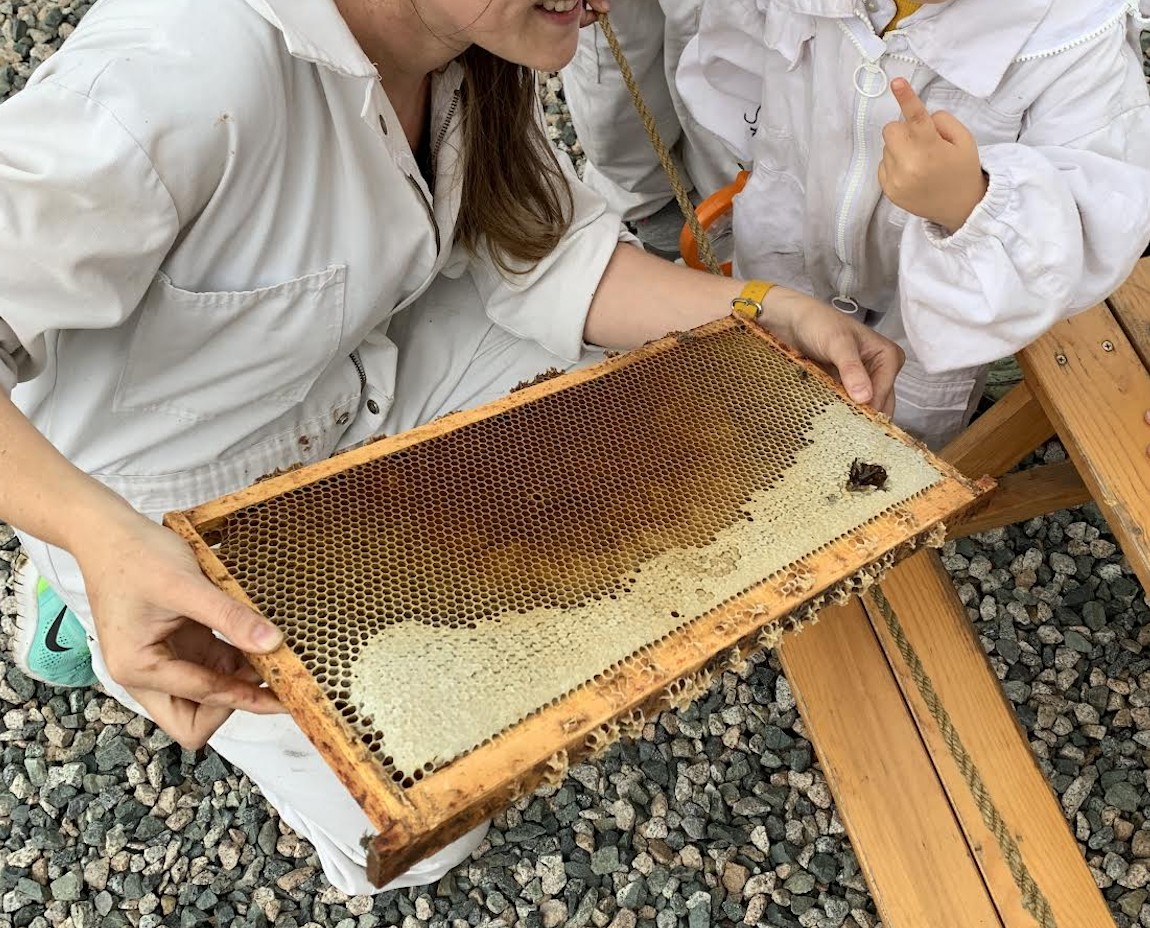
A child learns first-hand how to extract honey from a frame. Photo courtesy of Honeybee Centre
An online project… Beekeepers of the World – a social media project to illustrate that beekeepers come in all shapes and sizes and are in your community and all around the world.
Can you explain the pollinator program that involves renting out bee colonies to local farmers? How is it beneficial?
This is our main business at HBC is pollination services. We rent bees to farmers (mainly blueberry) which increases their produce yield by up to 8 times, and they get bigger brighter food.
Steps would be: farmer contacts HBC, our beekeepers visit the space to make an assessment and provide a quote (how much is needs and where to place)
Bees are moved into the farm, in the night, just as the crop is starting to bloom. The honeybees find that forage and therefore pollinate that crop. When the flowers are gone (fruit is now growing), we remove the bees (again at night, when all the bees are back in the box). Our bees visit a maximum of two (more likely one) mono-nectar crop, then spend the rest of the year in wild forage.
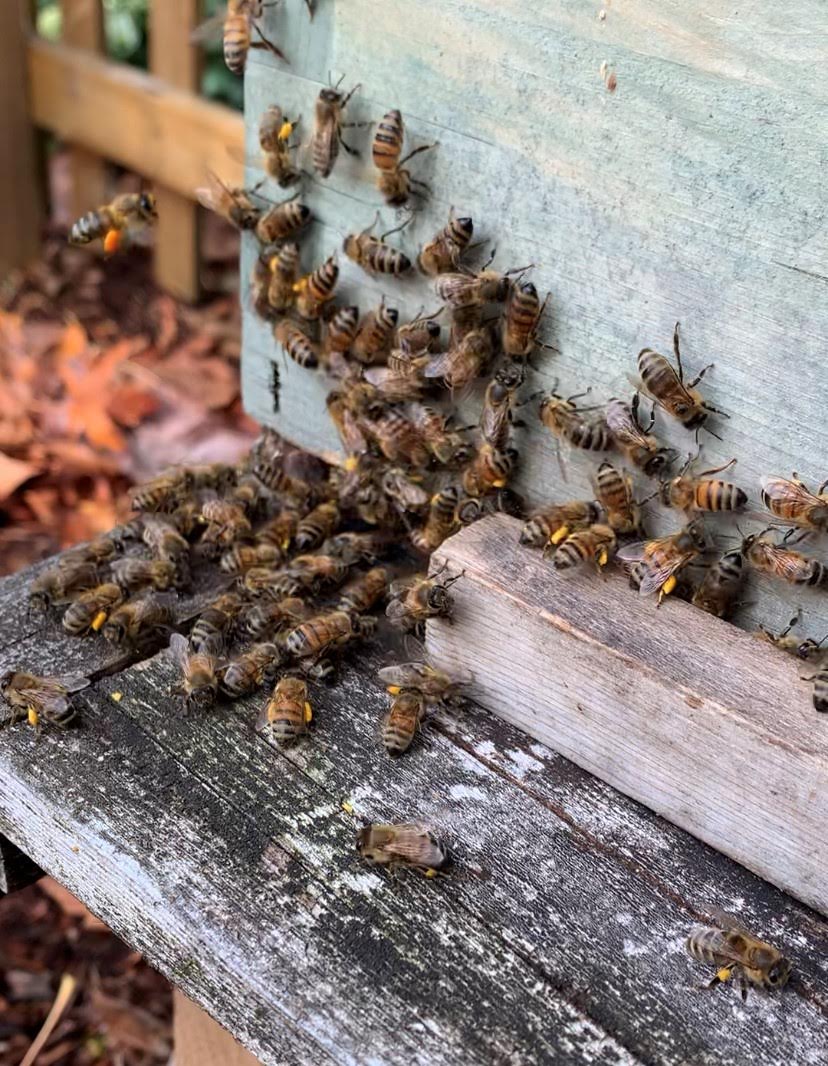
Honeybee Centre residents gather on a light box. Photo courtesy of Honeybee Centre
Your website states that the center was “our little piece of how to save the world and we knew it could make a difference.” How is the center making a difference today?
We are educating the next generation on the food web and the environment – one of every three bites of food is made possible by bees, without pollinators we would be in big trouble! Education is power! Honeybee Centre gives back to the community by offering free education through our Community Bee Garden Project as well as using this project to support the Surrey Food bank.
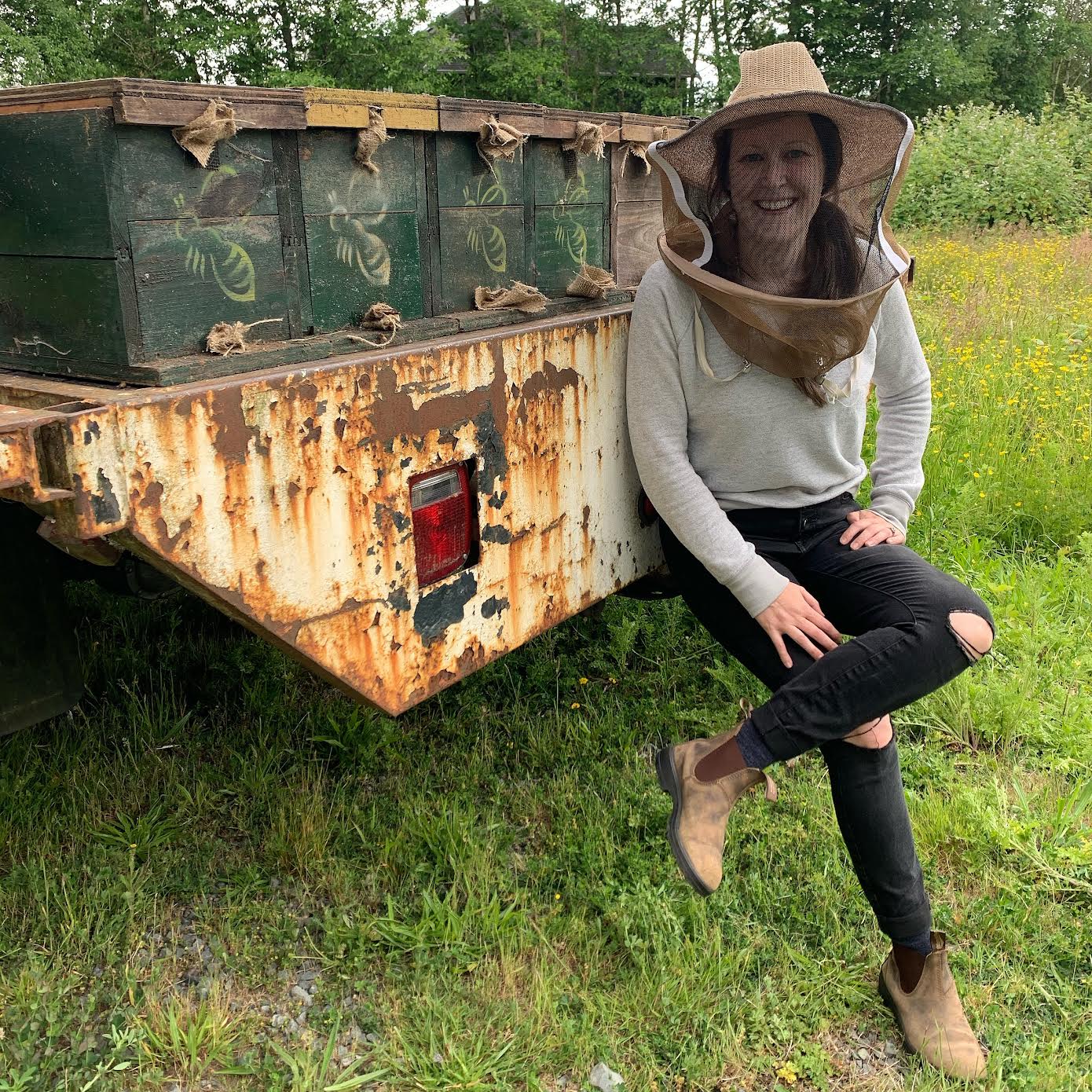
As co-owner as well as Education, Events & Outreach Coordinator, Cassie Gibeau takes pride in offering free education to the community. Photo courtesy of Honeybee Centre
What is one cool fact about honeybees most people don’t know?
OHH I have so many… you choose:
Female scout bees use dance to communicate directions to forage! It's called the waggle dance.
Female worker bees in the spring/summer only live 45 days. During this time she evolves through all the jobs in the hive, nurse, builder, undertaker, guard, forager, scout. The male bees or drones, live about 90 days but are only born when there is food in the environment. Their sole purpose is to spread the genetics of the hive by mating with a virgin queen from a different colony. Males die during the mating process.
Where do you see Honeybee Centre 10 years from now?
Just exactly where we are now: educating, learning, growing and constantly evolving to meet the needs of the bees and the community! Just a little bit older and a little bit wiser.
